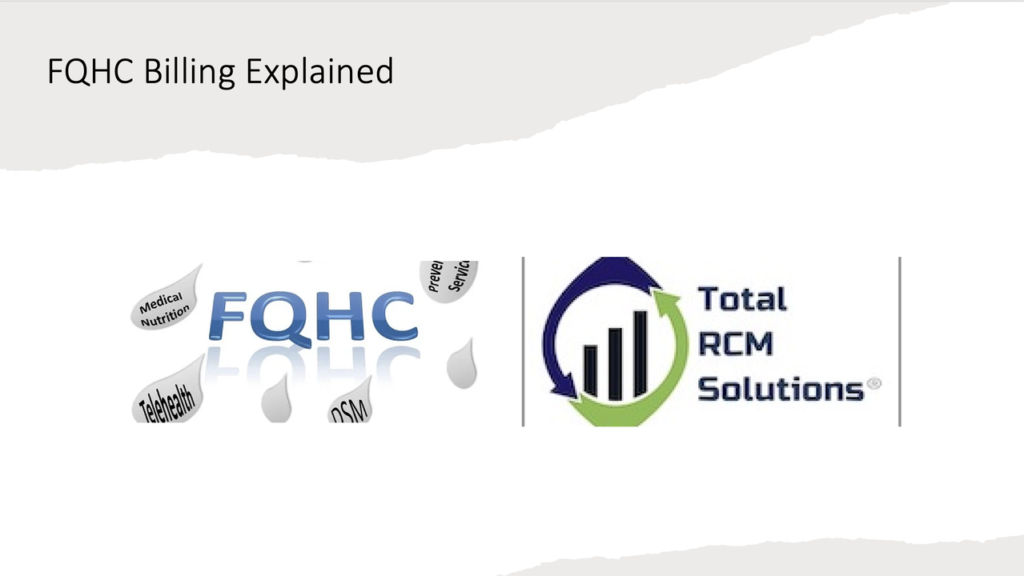
FQHC billing, or Federally Qualified Health Center billing, is a process used by healthcare providers to receive reimbursement for services provided to patients who are uninsured or underinsured. This type of billing is often used by community health centers and clinics that serve low-income populations.
- One key difference between FQHC billing and traditional medical billing is the reimbursement rates. FQHCs are reimbursed at a higher rate than traditional providers for certain services, such as preventive care and mental health services. This allows FQHCs to provide more comprehensive care to their patients.
- FQHC billing helps ensure access to affordable healthcare for low-income individuals. FQHCs receive enhanced Medicaid reimbursement rates, which allows them to provide services at a lower cost than traditional healthcare providers. This makes it easier for low-income individuals to access the care they need without facing financial hardship.
- Another difference is the documentation required for FQHC billing. Providers must document specific information about each patient encounter in order to receive reimbursement. This includes demographic information, medical history, and details about the services provided.
Some argue that FQHC billing can be complex and burdensome for providers. The documentation requirements can be time-consuming and may require additional staff resources. Additionally, there have been concerns about fraud and abuse in FQHC billing practices.
Despite these challenges, many believe that FQHCs play a critical role in providing essential healthcare services to underserved communities. As such, efforts should be made to streamline the billing process while ensuring compliance with regulations and preventing fraud. Ultimately, the goal should be to support these important providers in their mission of improving health outcomes for all Americans.
Despite these differences, both traditional medical billing and FQHC billing share the same goal of ensuring that healthcare providers are fairly compensated for their services. However, FQHCs have a unique focus on serving underserved populations and providing comprehensive care at an affordable cost
As a medical billing company, we have had my fair share of challenges when it comes to FQHC billing. Federally Qualified Health Centers (FQHCs) are community-based healthcare providers that offer comprehensive primary care services to underserved populations. These centers play a critical role in providing affordable healthcare to low-income families and individuals.
One of the biggest challenges we faced while working on FQHC billing was understanding the complex regulations and guidelines set by Medicare and Medicaid. The rules were constantly changing, making it difficult to keep up with the latest updates.
Another challenge was ensuring that all the required documentation was in place before submitting claims. This involved verifying patient eligibility, obtaining prior authorizations, and ensuring that all services provided were covered under the patient’s insurance plan.
Despite these challenges, we found FQHC billing to be incredibly rewarding. Knowing that my work helped provide access to quality healthcare for those who need it most made every obstacle worth overcoming.
To ensure proper billing and reimbursement for FQHC services, certain documents must be maintained and submitted accurately.
Firstly, FQHCs must maintain a sliding fee schedule that outlines the cost of services based on patients’ income levels. This document is crucial for ensuring that patients are charged appropriately and that the FQHC receives appropriate reimbursement.
Secondly, FQHCs must maintain encounter forms or super bills that document each patient visit’s details. These forms include information such as the date of service, diagnosis codes, procedure codes, and provider information. Accurate completion of these forms ensures proper billing for each patient visit.
Finally, FQHCs must submit claims to Medicare or Medicaid using a specific billing form known as the UB-04 or CMS-1500 form. These forms require accurate completion of patient demographic information, insurance information, diagnosis codes, procedure codes, and charges.
In conclusion, maintaining accurate documents is essential for successful FQHC billing and reimbursement. Proper documentation ensures that patients receive appropriate care while also ensuring financial stability for the healthcare provider.
